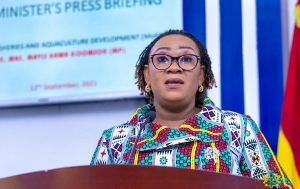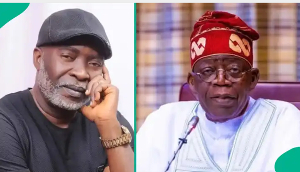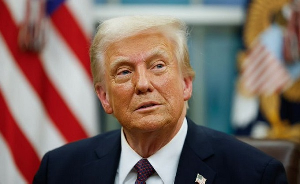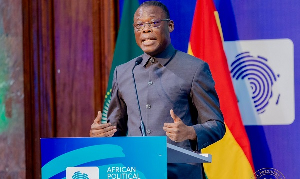Ghana is expected to have an accelerated real Gross Domestic Product (GDP) growth rate of between 5.6% and 6 % with an investment rate of 24.4% by the year 2006, if the government continues to move the economy in the direction it is heading.
Prof. C. K .Dordonoo. Chief Executive of ClayDord Consult, made this known to participants of the maiden Forum for the Ghanaian Economy and launching of the maiden publication of the Ghana Economic Forecasts and Analysis (GEFA), which was jointly organised by the Chartered Institute of Bankers (Ghana), and the Consult.
He was optimistic that the fiscal balance would show some modest improvement rising from the negative close to 0% by 2006. He pointed out that given the history of inflows and the perennial lack of local counterpart funds, the country would intensify revenue mobilization.
He noted that the trade balance as a proportion of GDP may improve from the -14% expected this year to -10% by 2006, but current account balance might worsen slightly. Debt service and liquidity ratio may decline from 30% last year and 27% this year to a low of 18% in 2006.
The implied solvency rate is forecast to decline from 108.99% expected this year to 63.15%, meaning that the country would continue to be severely indebted but slightly better than when it was without Highly Indebted Poor Country (HIPC) initiative.
Prof. Dordunoo expects that the average lending rate would decline moderately from 39% this year to 26.52% by 2006 as well as inflation and depreciation rates averaging 9.32% and 6.52 % respectively, domestic institutional savings may average 8.1%.
Employment is not expected to increase fast enough to absorb many of the 330,000 jobless people who enter the labour market every year. The don, in fact, projected unemployment rate to range between 8% and 10%.
On policy issues, Prof. Dordunoo made it clear that the government must resolve to remove, or at least minimize, the bottlenecks in the way of Ghanaian industries.
Besides, bank-lending rates must go down in line with other rates in order to reduce the cost of borrowing by private entrepreneurs, otherwise the targeted growth would elude the economy.
He urged Government to intensify the fight against corruption and the armed robbery and other criminal activities that increase the country's risk status. He advised the government to continue to pursue liberal economic policies for wealth creation, poverty reduction and the divestiture of State Owned Enterprises (SOEs).
Also, a more flexible exchange rate policy should be pursued while the private sector is enabled to be the engine of growth. He also advised the government to take full advantage of the NEPAD and the AGOA initiatives.
Mrs. Villars, President of the Association of Ghana Industries (AGI), complained of high and unfavourable taxes and tax system, an interest rate of about 39%, although, she noted, inflation is declining, lack of long term financing, unreliable and inefficient utility services, bad infrastructure, and inadequate linkage between research and industry.
She lamented that the banks had not supported the cause of Ghanaian industries because most of their loans are channeled to the commerce sector.
In her opening address, Ms. Mary Buako, Chief Executive of the Chartered Institute of Bankers (Ghana), said that the seminar and the publication were to assist industrialists, bankers, investors, and all commercial concerns, as well as the government, to strategically draw their plans and policies.
On his part, Mr. Francis Tweneboa, Managing Director of the Ghana Stock Exchange, who launched the maiden edition of the GEFA, said that the fundamental problem of Ghana is its vulnerability to world economic shocks, adding that the country must vigorously pursue her diversification policy.
Business News of Thursday, 24 October 2002
Source: Chronicle












